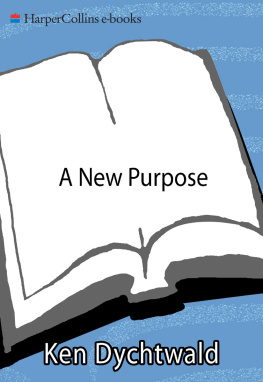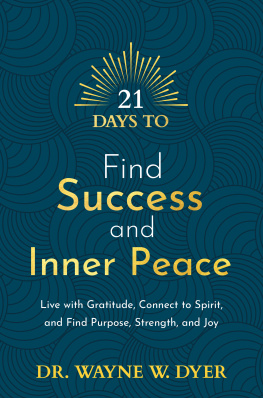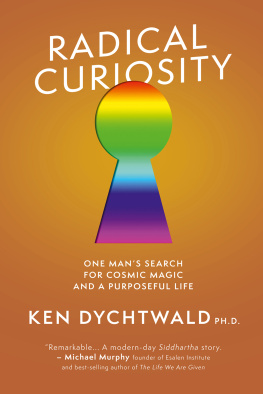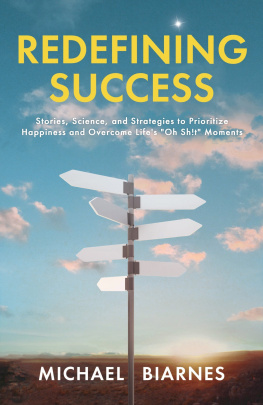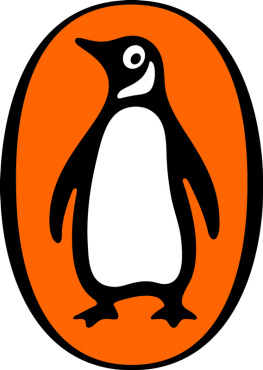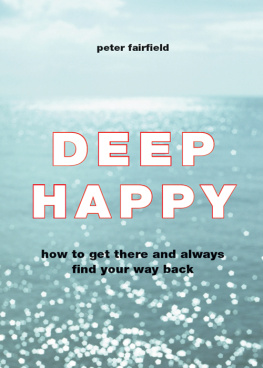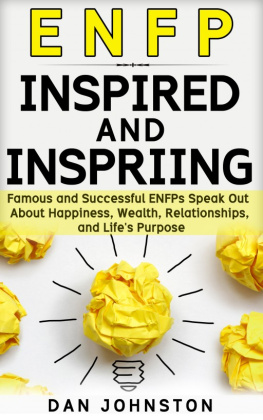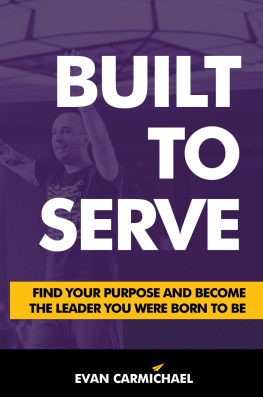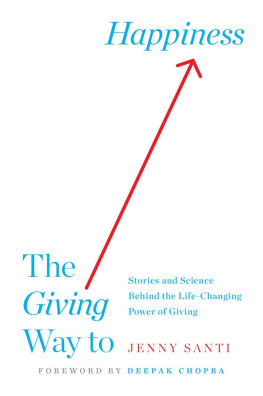I first became interested in the study of aging, maturity, and retirement more or less by accident. I was twenty-three, living and teaching at the Esalen Institute in Big Sur, California, completing my doctorate and working on my first book, Bodymind . I was asked by Dr. Gay Luce, who was working on creating an innovative new human potential training program, if Id be interested in partnering with her.
This was in 1973, years before the wellness movement, before the holistic health movement, before Pilates or peak performance, even before yoga had really caught on.
I decided to move to Berkeley to join Dr. Luce in crafting this program. It was going to be a year-long comprehensive curriculum, very different from the weekend workshops and two-hour lectures that were becoming popular. Before it even got off the ground, it struck Gay that in our youth-focused culture, nobody was using any of these innovative therapeutic techniques with the elderly. She changed direction and she asked if Id be open to joining her. As a young man in my early twenties, the idea of working with the elderly didnt initially hold much charm for me. I liked being with people my own age and also doing programs for people in their thirties and forties. I told Gay I would get the project started and then move on.
But I got hookedand have been hooked for more than thirty-five years. Once I was in the project, I became absolutely fascinated with older people. I realized that if you could see past the way they dressed, the wrinkles and gray hair, these were often towering figures, seasoned men and women who had a vast perspective on life. Many had a kind of home-grown wisdom that intrigued me.
With funding from the National Institutes of Health, our Berkeley-based Sage Project became the nations first preventive health research program focusing exclusively on older adults. Our subjects, who ranged in age from sixty to ninety, were divided into groups of twelve and met twice each week in four-hour sessions over the course of a year. During these meetings, participants were introduced to yoga, meditation, aerobics, stress management, biofeedback, proper nutrition, art, movement and dream therapy, and were encouraged to share their thoughts, feelings, and progress with other group members in an open, team-like atmosphere.
Our project became extremely successful. Before I knew it, I was being invited all over the world to speak about a new image of aging. Soon I began to be interested not only in the elderly, but also in the journey of aging itself. I was curious about how we get to be the people we become, about the choices we make along the way that make us either healthy, vibrant, and engaged, or unhealthy, impoverished, and disconnected.
Through my research and travels, I would meet people in their seventies who were poor but hadnt always been so, and they could describe the bad moves that had left them impoverished. I would meet older people who were terribly lonely, and it was clear that along the way, they had not made new friends or tried new activities that would have brought them into a new world of relationships. It became increasingly obvious to me that to a great extent, we ourselves make the decisions, consciously or not, that lead us to who well become in our later years.
When we go on vacation, we usually do a lot of prep work. We plan out where were going to be, what kind of clothes well need, what kind of currency we should bring along. Yet for some reason, we dont do this same kind of thinking about the second half of our lives. We just assume that if we keep barreling away in the direction were going, everything will wind up okay. And sometimes it doesbut often it doesnt.
Way back in 1982, I served as adviser to a two-year project launched by the U.S. Congresss Office of Technology Assessment that focused on how America would be transformed by the aging of our population in the early twenty-first century. The twenty of us on the panel would study all sorts of provocative essays and white papers, and then assemble in Washington every few months to debate and try to make sense of it all.
This was when I was struck by the demographic piece of the puzzle. That was when I first saw the age wave coming. I realized that because of increasing longevity and declining fertility, but most importantly because of the aging of the baby boom, America would be undergoing a radical transformation by the beginning of the 21st century, as these 78 million people began moving into their fifties and sixties.
It occurred to me that we had shaped our world in every way around the form and fit of who we had always beenwhich was young . In the decades to come, I saw that we were going to have a world in which the typefaces would be too small, where doorknobs would have to be replaced by door levers, where the length of time it takes for the traffic lights to change would be too quick and the auditory range on our telephones and televisions would be out of sync with aging ears.
I thought, How will housing and community design be impacted? Is our health-care system prepared for the coming pandemics of chronic disease? Whats going to happen to the pharmaceutical industry? How will foods and beverages be changed to accommodate aging taste palates and bodies with different nutrient requirements? How would the aging nations of the Americas, Europe, and Asia continue to be economically productive with so many dependent older citizens being supported by shrinking numbers of young workers? Could our political system restrain the demands that tens of millions of elder boomers would place on the social and economic infrastructure? Would our democracy become a gerontocracy? And, what about people who will want to reinvent their careers? What will become of retirement? Who might we each becomethanks to increasing longevity? And, whos going to pay for all of this? All these ideas started flooding my mind, and that flood hasnt stoppednot for one day in all of these years.
It struck me that all of life was going to have to be re-charted: old age would be moved back and there would be a new middle zone of life, which I began calling middlescence . People said, Hey, you cant just make up a stage of life!
But this isnt the first time this has been done. For example, the idea of adolescence didnt exist until relatively recently. At the beginning of the twentieth century, people would go from being children to being adults virtually overnight; there was nothing in between. Then, as we began instituting child labor laws and creating a fuller high school experience, adulthood was postponed. A sociologist named Stanley Hall identified this emerging new stage of life and called it adolescence. When the boomers came along in the 1950s, we did it again, further postponing adulthood by creating another new stage of life called young adulthood.
Today, as people begin reaching their fiftieth birthdays, they are no longer turning the corner to old age as they had done in my grandparents time. Instead, it is becoming a time of continued vitality with an appetite for new beginnings and personal reinvention. So were not simply living longer, weve invented a new life stagewith more to come. People tend to assume that living longer simply means being old longer. Im convinced that our entire concept of how we live our lives is shifting. This is an entirely new landscape that weve never charted before.
Years ago, an older friend shared an interesting pair of memories. When he was a boy, his grandfather passed away at the age of sixty-two. At the funeral, people talked about how he had led such a long and rich life. Years later, as fate would have it, the mans son (my friends father) died at exactly the same agebut at his funeral everybody said, Its so sadhe died so young!

